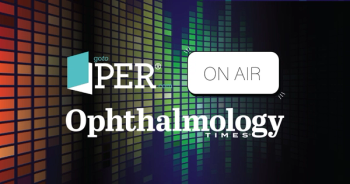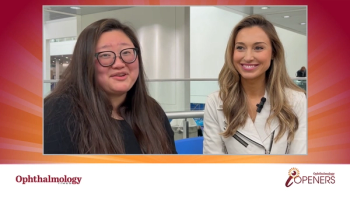
When at first you don’t succeed with MGD patients, keep trying
It's not always easy to convince early-stage, minimally symptomatic or symptomatic patients that their MGD should be treated. Cynthia Matossian, MD, FACS, explains why ophthalmologists shouldn't take this personally and how not to accept their denial as a final answer.
Meibomian gland disease (MGD) is a chronic, progressive condition that benefits from early treatment.
However, it is not always easy to convince early-stage, minimally symptomatic or symptomatic patients that their MGD should be treated.
These patients may not be fully “bought in” to the idea of having MGD, or the disease is affecting them so little that they can’t justify the cost of an in-office treatment like thermal pulsation therapy (LipiFlow, Johnson & Johnson Vision).
Previously by Dr. Matossian:
It is not unusual, therefore, for patients to decline or say they will “think about it.”
Our job, as medical professionals, is not to take this personally—and not to accept that it is a final answer, either.
As the disease progresses, such patients may become more symptomatic or more troubled by fluctuating vision, especially if progression is compounded by poor compliance with topical therapies and/or at-home measures such as warm compresses, lid scrubs, and oral omega-3 fatty acid supplementation.
When these patients return for a yearly check-in, they may be ready to hear the message differently.
It is important for eyecare professionals to re-recommend thermal pulsation (or any other out-of-pocket treatment) without judgment. Don’t put patients on the defensive by reminding them that they didn’t follow your previous advice.
I always focus on the objective data and the documented symptomology, presenting specific diagnostic evidence to help patients understand that their disease is advancing.
Related:
For example, I might say, “Last year you were using artificial tears twice a day, and it has increased to about six times a day now. That means your eyes are bothering you more. Is that correct?”
Or I might show them where I see more dropout of the meibomian glands on the dynamic meibomian imaging than I did at their last visit (Figure 1a-b).
We also let patients know that the price for a thermal pulsation procedure has come down in the past 18 months—which is unusual enough in health care that it is always remarked upon.
I explain that the manufacturer reduced the price of the activators and we are happy to pass that savings on to patients. Therefore, if price was a barrier in the past, perhaps it will be less of one now.
I’m careful to reinforce appropriate expectations, by making it clear that while I think the thermal pulsation procedure will be helpful, it is not a miracle cure nor a one-time treatment.It may or may not make an immediate difference in symptoms, and it will need to be repeated in the future.
Being consistent in recommending a treatment that I believe is beneficial for MGD is a good way to recapture patients who might not have been ready for a treatment in the past, but who can still benefit now.
----
About the author
Cynthia Matossian, MD, FACS
Dr. Matossian is the founder and medical director of Matossian Eye Associates, Pennsylvania and New Jersey; adjunct clinical instructor at Temple University School of Medicine, Philadelphia.
Newsletter
Don’t miss out—get Ophthalmology Times updates on the latest clinical advancements and expert interviews, straight to your inbox.




























